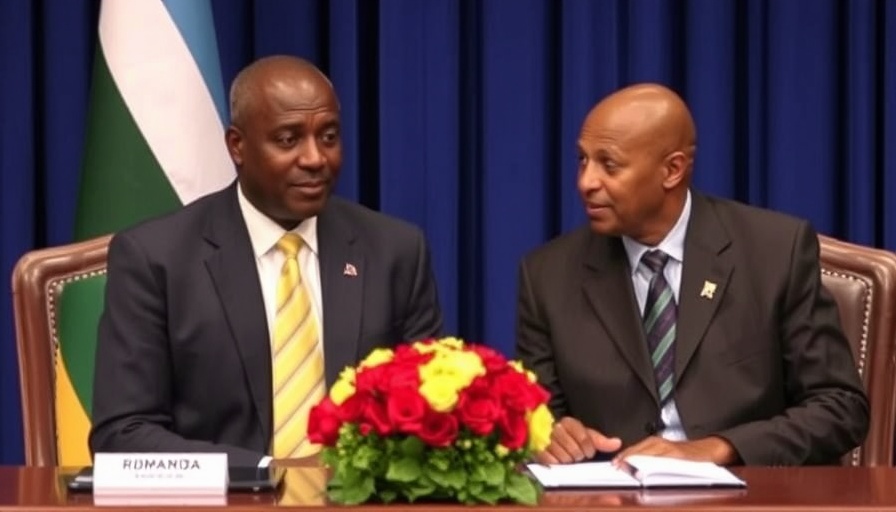
Rwanda and Congo Move Towards Stability: A Crucial Peace Deal
The recent agreement between Rwanda and the Democratic Republic of the Congo (DRC) to draft a peace deal by May 2 marks a significant step in stabilizing East Africa's geopolitical landscape. This arrangement comes amid escalating tensions and conflict fueled by rebel activity in eastern Congo, raising concerns for regional security and economic stability.
Understanding the Conflict: Economic Ramifications
At the heart of the Rwandan-Congolese tensions is a complex interplay of historical grievances and ongoing ethnic strife. The region's instability poses a serious threat not only to the affected populations but also to investors keen on the burgeoning African market. Disruptions in peace impede growth prospects, as seen in the current interruptions to trade routes essential for regional partners.
Geopolitical Implications for the African Economy
As the world's attention shifts towards Africa's economic potential, agreements like these become critical not just for peace but also for the continent's footprint in global markets. The draft agreement could pave the way for renewed investment opportunities, particularly from neighboring states and traditional allies in Europe and China. With renewed stability, we could expect growth in various sectors, from mining to agriculture, further intertwining their economies.
Broader Context: Africa in the Global Arena
This peace agreement is more than just a bilateral initiative; it has implications for wider African foreign relations. A successful negotiation would bolster Rwanda and the DRC's positions in international forums, reaffirming their commitment to maintaining regional peace. As policymakers and analysts tune into the dynamics of Africa-China relations and emerging markets, this cooperation could deter foreign intervention and foster a self-sustaining model of diplomacy in Africa.
Investing in Peace: What Comes Next?
For business leaders and policymakers, the upcoming discussions ahead of the May deadline will be crucial. Engaging with these developments allows for crafting strategies that align with evolving geopolitical trends. As the African landscape continues to shift, understanding these negotiations ensures that stakeholders are well-prepared to mitigate risks and seize new opportunities as they arise.
As stakeholders closely monitor the peace process between these two nations, it is vital to remain engaged with geopolitical trends impacting Africa's economy. A more peaceful region might just be the stepping stone towards a more integrated and prosperous African market.
 Add Row
Add Row  Add
Add 


 Add Row
Add Row  Add
Add 

Write A Comment